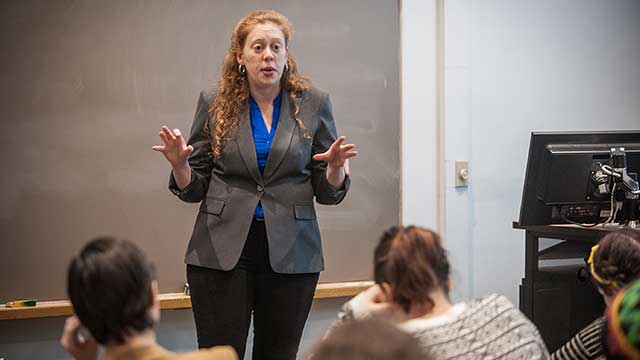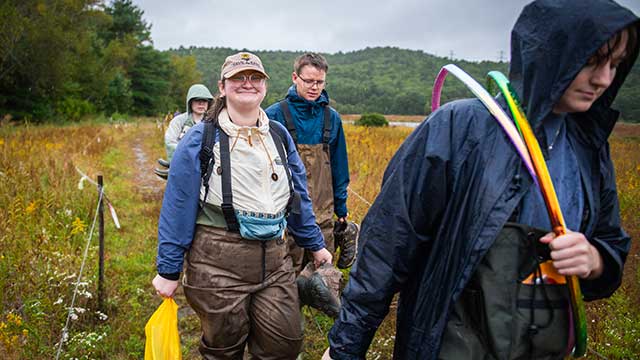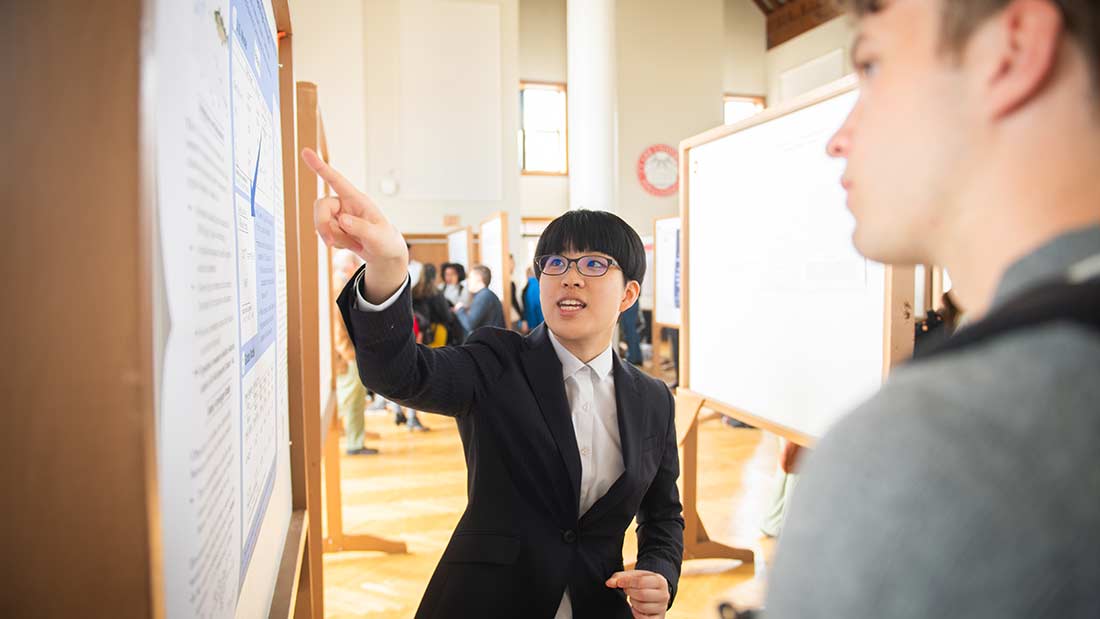Clark Core
As part of Clark’s liberal arts education curriculum, all students will complete the Clark Core — one of the important ways in which Clark delivers on our promise that you’ll be prepared to succeed and have impact in the world.
Aesthetic Perspective
Enhance appreciation and understanding of the arts.
Scientific Perspective
Experience the experimental and problem-solving nature of scientific study.
Global Comparative Perspective
Gain a global context for understanding the human experience — diverse cultures, societies, political systems, and economic structures.
History Perspective
Better understand how the past informs, shapes, and diverges from the present.
Language and Culture Perspective
Develop intercultural literacy through the study of a language or literature other than English.
Values Perspective
Inspire critical thinking around moral, ethical, and prescriptive frameworks that formulate your view of the world.
Diversity and Inclusion
Analyze concepts such as power, privilege, intersectionality, and identity.
Written Expression
Focus on writing clearly and persuasively, making strong arguments grounded in textual evidence, and thinking critically about texts.
Formal Analysis
Problem-solve through quantitative aspects of the world.
Clark Core academic requirements apply to students who have enrolled at Clark in the fall 2024 and after. Students who began their academic journey prior to that should refer to the Program of Liberal Studies.




